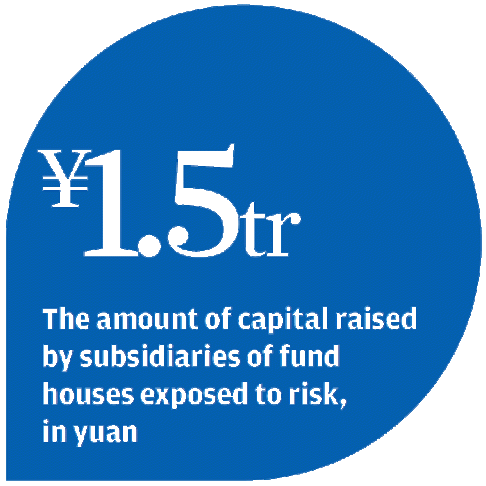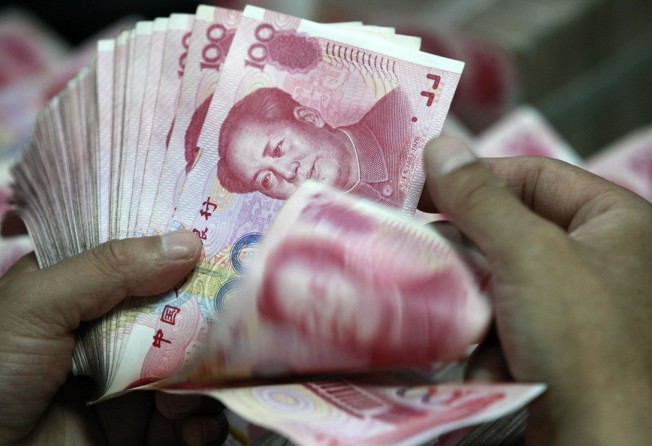
Chinese mutual funds caught up in shadow banking fallout

The mainland's shadow banking woes have spread to the mutual fund sector, fuelling fears that defaults and frauds could spread in waves despite Beijing's efforts to deleverage an economy facing the risk of a hard landing.

Earlier this month, Shanghai Goldstate Brilliance Asset Management, an alternative investment arm of Value Partners Goldstate, announced a 600 million yuan real estate fund would not be able to pay interest to investors, indicating the product would fail amid a weakened property market.
At the same time, Wanjia Win-Win, a subsidiary of Wanjia Asset Management, said it had uncovered fraudulent actions by a partner, Shenzhen Jingtai Fund Management, in the operations of a real estate fund started in June.
Win-Win accused Jingtai of violating the product's agreed investment strategy and misusing 800 million yuan in cash for other projects.
A source close to executives of the two funds said part of the misused 800 million yuan was transferred to the project that Goldstate invested in, in an attempt to disguise problems, a move he described as robbing Peter to pay Paul.
"Shadow banking woes have turned out to be more serious than people ever thought," said the source, who asked not to be identified. "The two scandals won't be isolated cases."
Gopher Asset Management, an investment adviser to the Win-Win real estate fund, said police were conducting a criminal investigation into Jingtai's actions.
In 2012, Beijing encouraged mutual fund managers, which had previously focused on equity investments, to diversify their revenue sources, allowing them to establish subsidiaries to deal with alternative investments.
But the alternative investment units raised funds to bolster the growth of the shadow banking system, which China Securities Regulatory Commission chairman Xiao Gang has labelled a Ponzi scheme.
Commercial lenders on the mainland have issued trillions of yuan of wealth management products to net fresh funds from depositors before relending them to borrowers, many of them property developers.
The practice has seen banks become middle-men in the raising of funds for borrowers, rather than financial institutions dealing directly with deposit and lending business.
Those unable to secure banking loans have resorted to the shadow banking system to obtain funds, offering investors higher returns than those offered by bank deposits.
"The scandals brought the CSRC in because it was forced to step up the policing of fund management companies," said Howhow Zhang, the research head of fund consultancy Z-Ben Advisors. "Tackling the shadow banking problem within the mutual fund houses' subsidiaries should also be put on the regulator's agenda."
About 70 alternative investment companies have been set up by mainland mutual fund houses, with total assets under management of about 1.5 trillion yuan.
Premier Li Keqiang, battered by concerns that the mainland economy could be facing a hard landing, has tried to rein in the shadow banking system by tightening monetary policies.
Those efforts contributed to a cash crunch in the financial system, with interbank interest rates surging to record highs in the middle of last year.
"Look at the massive cash piled in the shadow bank system, and you will find that the mainland is not short of money, but that it lacks an effective system to reasonably allocate the financial resources," said Gu Weiyong, the chief investment officer at Shanghai Ucon Investment Management.
"The authorities are facing an uphill task of fine-tuning the country's financial system. To be honest, financial risks are far from being controlled."